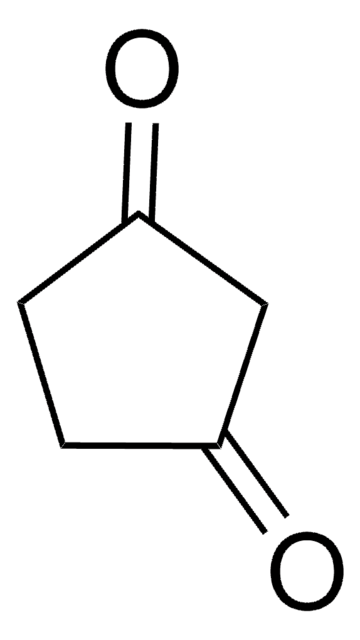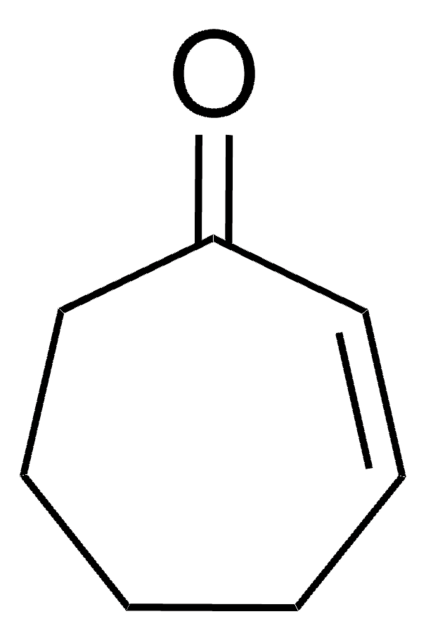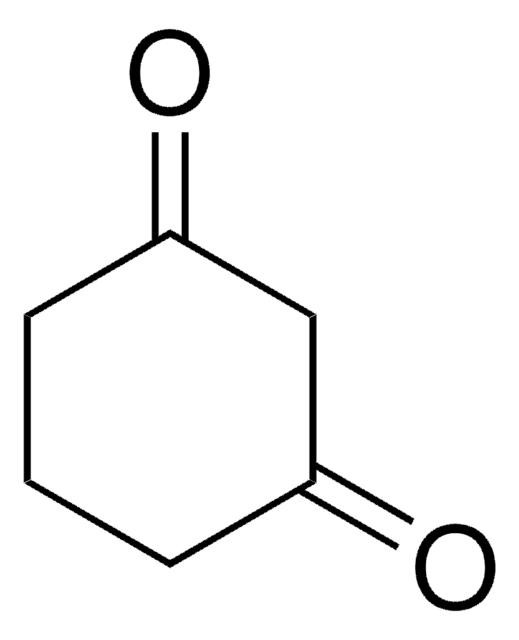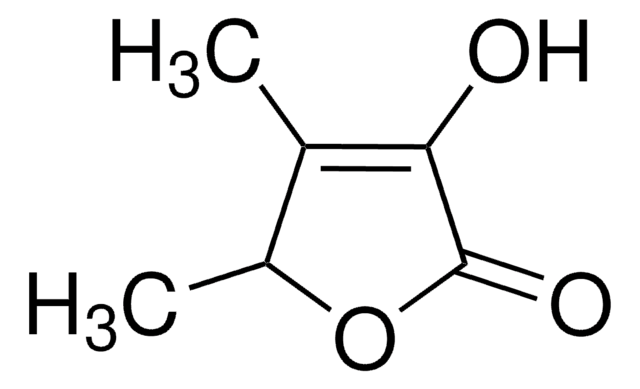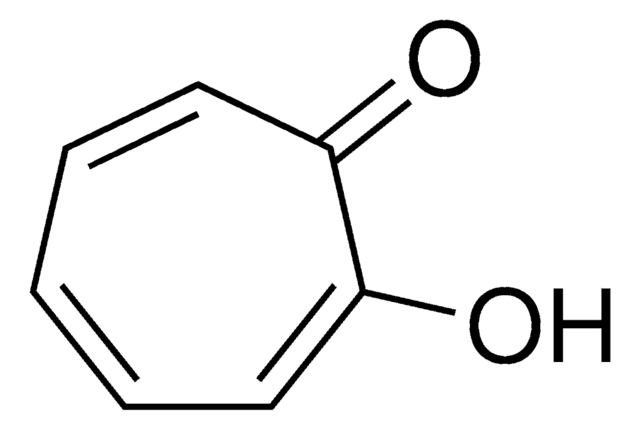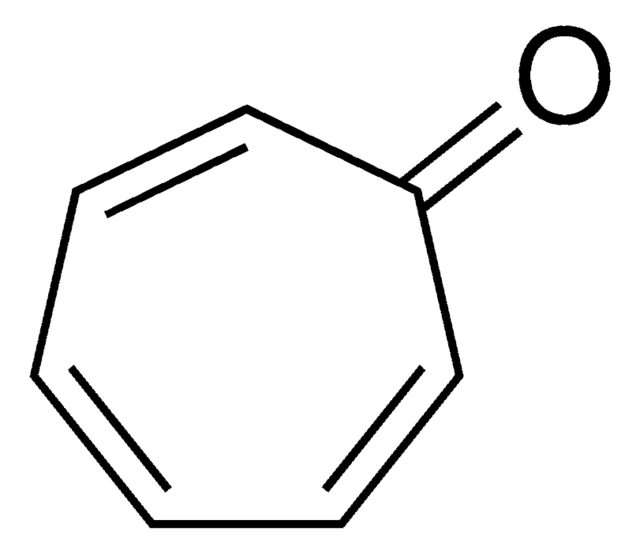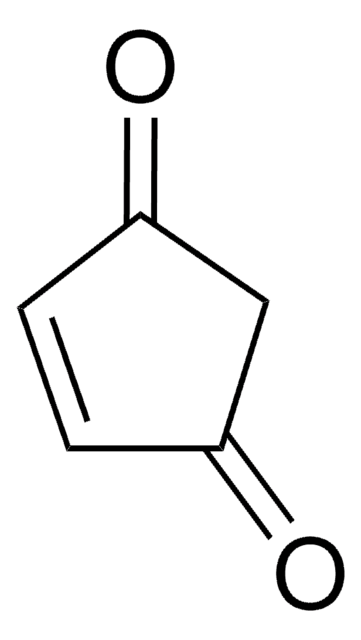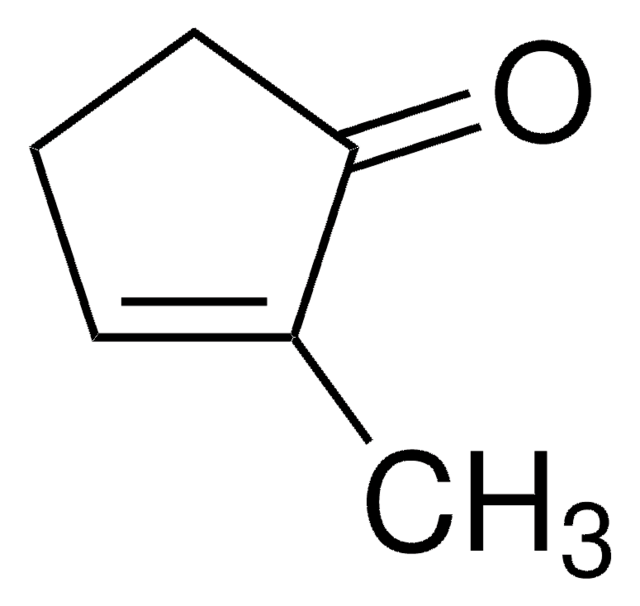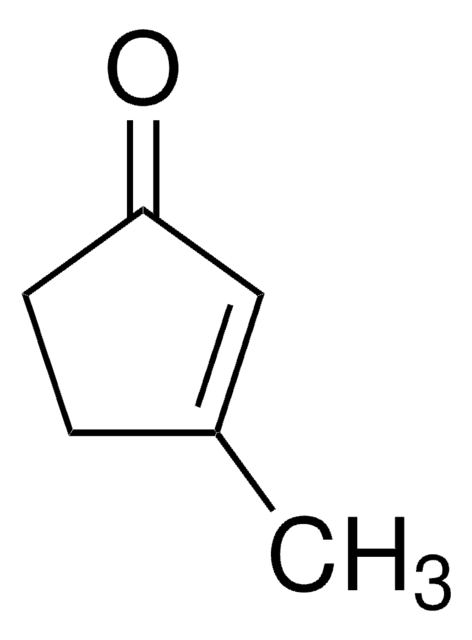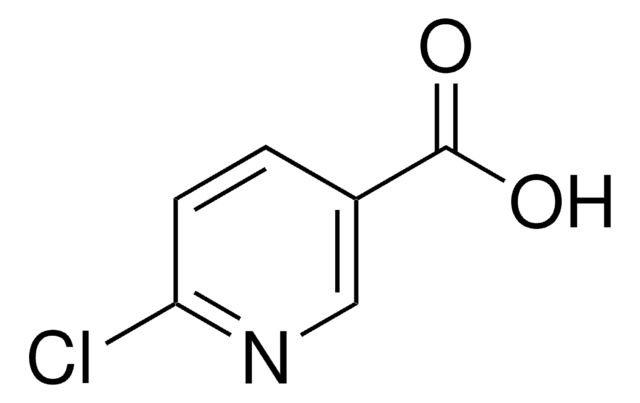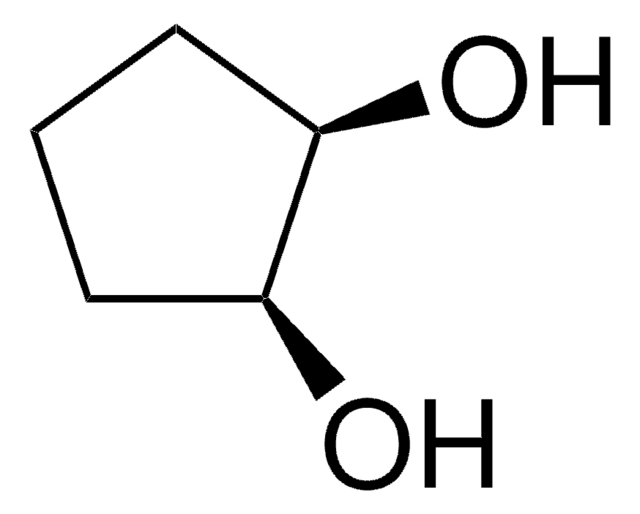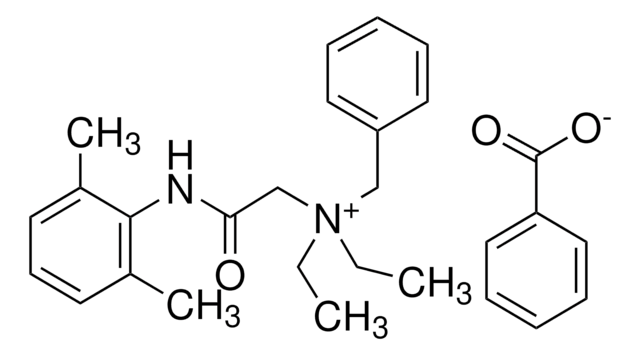おすすめの製品
詳細
3-Methyl-1,2-cyclopentanedione is present in coffee and is capable of scavenging peroxynitrite. It also has anti-inflammatory effects.
保管分類コード
11 - Combustible Solids
WGK
WGK 3
引火点(°F)
Not applicable
引火点(℃)
Not applicable
個人用保護具 (PPE)
Eyeshields, Gloves, type N95 (US)
適用法令
試験研究用途を考慮した関連法令を主に挙げております。化学物質以外については、一部の情報のみ提供しています。 製品を安全かつ合法的に使用することは、使用者の義務です。最新情報により修正される場合があります。WEBの反映には時間を要することがあるため、適宜SDSをご参照ください。
Jan Code
178500-50G:
178500-VAR:
178500-BULK:
178500-10G:
この製品を見ている人はこちらもチェック
M Mozaffarieh et al.
Survey of ophthalmology, 53(5), 479-505 (2008-10-22)
Glaucomatous optic neuropathy implies loss of retinal ganglion cells, including their axons, and a major tissue remodeling, especially in the optic nerve head. Although increased intraocular pressure is a major risk factor for glaucomatous optic neuropathy, there is little doubt
Jae Heun Chung et al.
Journal of agricultural and food chemistry, 55(16), 6787-6792 (2007-07-17)
Activation of the redox-sensitive transcription factor, nuclear factor-kappa B (NF-kappaB), plays a central role in inflammation and aging processes by inducing pro-inflammatory genes. The present study was designed to unravel the molecular mechanisms underlying the anti-inflammation effects of 3-methyl-1,2-cyclopentanedione (3-MCP)
Ae Ra Kim et al.
The Journal of pharmacy and pharmacology, 54(10), 1385-1392 (2002-10-25)
It has been known that reactive oxygen and nitrogen species such as nitric oxide (NO), superoxide radical (*O2-) and their byproduct peroxynitrite (ONOO-) induce cellular and tissue injury, ultimately resulting in several human diseases. In this study, we examined scavenging
Seo Young Choi et al.
Biochimica et biophysica acta, 1770(12), 1612-1619 (2007-10-13)
Peroxisome proliferator-activated receptors (PPARs) are members of the nuclear hormone receptor superfamily that plays a pivotal role in regulating inflammatory gene expression. The purpose of this study was to investigate the effects of coffee extract, 3-methyl-1,2-cyclopentanedione (3-MCP) on PPARs in
Bryson W Katona et al.
The Journal of organic chemistry, 72(24), 9298-9307 (2007-10-26)
Deoxycholic acid (DCA) is an endogenous secondary bile acid implicated in numerous pathological conditions including colon cancer formation and progression and cholestatic liver disease. DCA involvement in these disease processes results partly from its ability to modulate signaling cascades within
ライフサイエンス、有機合成、材料科学、クロマトグラフィー、分析など、あらゆる分野の研究に経験のあるメンバーがおります。.
製品に関するお問い合わせはこちら(テクニカルサービス)